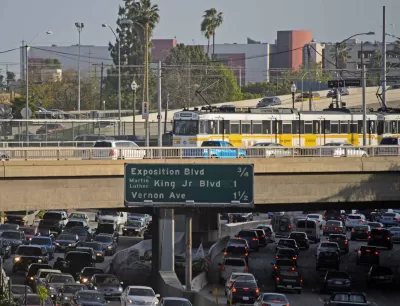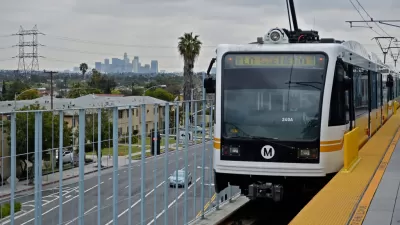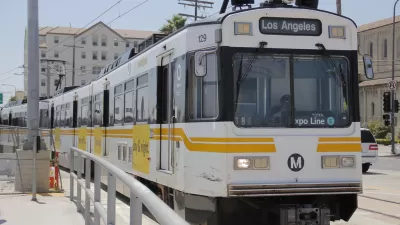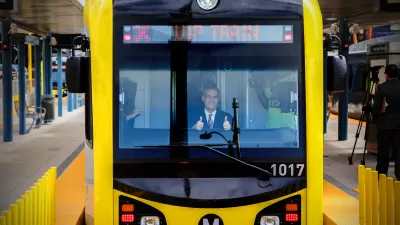A lot of promises get made in the hopes of building political support in transit options like light rail. Perhaps, however, officials in Los Angeles should stop promising that transit will alleviate congestion.

"Contrary to predictions used to promote the first phase of the Expo light rail line between downtown and Los Angeles' Westside, a new study has found that the $930-million project has done little to relieve traffic congestion in the area," according to an article by Dan Weikel and Alice Walton.
But wait, before anyone accuses the line of being all-for-naught, the study also found that the Expo Line boosted transit ridership.
Which brings up a fair point: maybe "political and transportation leaders should rethink the way they market such transit investments to the public." The report's authors even go so far as to suggest some more valid and deliverable talking points for supporting transit, "such as providing transportation for low-wage earners, increasing links to job centers and providing more travel options." Earlier studies showed the willingness of people to use Expo Line instead of cars—residents living within a half-mile of stations on the Expo Line drive 40 percent less than they did before the line opened.
Weikel and Walton provide a lot more detail about the findings of the study, which precedes the forthcoming opening of the extension of the Expo Line farther west into Santa Monica.
FULL STORY: L.A. Expo Line hasn't reduced congestion as promised, a study finds

Planetizen Federal Action Tracker
A weekly monitor of how Trump’s orders and actions are impacting planners and planning in America.

Chicago’s Ghost Rails
Just beneath the surface of the modern city lie the remnants of its expansive early 20th-century streetcar system.

San Antonio and Austin are Fusing Into one Massive Megaregion
The region spanning the two central Texas cities is growing fast, posing challenges for local infrastructure and water supplies.

Since Zion's Shuttles Went Electric “The Smog is Gone”
Visitors to Zion National Park can enjoy the canyon via the nation’s first fully electric park shuttle system.

Trump Distributing DOT Safety Funds at 1/10 Rate of Biden
Funds for Safe Streets and other transportation safety and equity programs are being held up by administrative reviews and conflicts with the Trump administration’s priorities.

German Cities Subsidize Taxis for Women Amid Wave of Violence
Free or low-cost taxi rides can help women navigate cities more safely, but critics say the programs don't address the root causes of violence against women.
Urban Design for Planners 1: Software Tools
This six-course series explores essential urban design concepts using open source software and equips planners with the tools they need to participate fully in the urban design process.
Planning for Universal Design
Learn the tools for implementing Universal Design in planning regulations.
planning NEXT
Appalachian Highlands Housing Partners
Mpact (founded as Rail~Volution)
City of Camden Redevelopment Agency
City of Astoria
City of Portland
City of Laramie





























